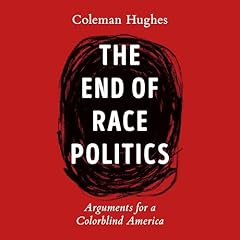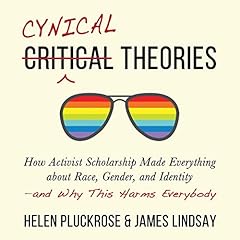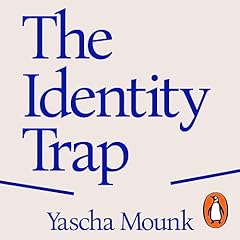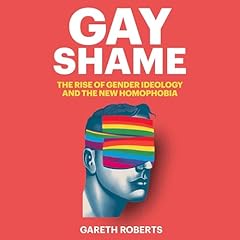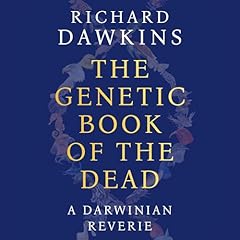
The Counterweight Handbook
Principled Strategies for Surviving and Defeating Critical Social Justice Ideology - at Work, in Schools and Beyond
Failed to add items
Add to basket failed.
Add to wishlist failed.
Remove from wishlist failed.
Adding to library failed
Follow podcast failed
Unfollow podcast failed
£0.99/mo for first 3 months
 Prime members: New to Audible? Get 2 free audiobooks during trial.
Prime members: New to Audible? Get 2 free audiobooks during trial.
Buy Now for £12.99
No valid payment method on file.
We are sorry. We are not allowed to sell this product with the selected payment method
-
Narrated by:
-
Helen Pluckrose
-
By:
-
Helen Pluckrose
About this listen
Over the last several years, organisations and institutions throughout the West - both public and private - have adopted comprehensive diversity and inclusion policies and new forms of employee and student training on antiracism, unconscious bias, gender diversity, cultural sensitivity and other related topics. The stated goals of these programs are often reasonable if not noble - to create a more welcoming space and inclusive environment for all. But such training, when based on the activist ideology known as Critical Social Justice, crosses a clear line when participants are required to affirm beliefs they do not hold. The mildest questions about or objections to common teachings in the sessions - that all white people are racists, that all underrepresented minorities are oppressed or useful tools of the majority, that sex and gender differences have no biological basis - are regularly met with pat commands: 'Educate yourself,' 'Do the work,' 'Listen and learn.'
At work, raises, promotions and even future employment may well depend on nodding approval during such training. At school, grades, nominations and awards may be contingent upon active agreement with these ideological beliefs. When faced with such a predicament - between silent submission and risky if ethical opposition - what is a person to do?
The Counterweight Handbook provides individuals with a practical and easily navigable guide to understanding and addressing the issues that are likely to arise when this activist ideology is implemented in their organisation or institution. It also teaches them what to do when they are being expected to affirm their commitment to beliefs they simply do not hold, undergo training in an illiberal ideology they cannot support, or submit themselves to antiscientific testing and retraining of their 'unconscious' minds. It is for everyone who wishes to push back against the hostile work and educational environments such training inevitably creates - or who fears being fired, censored or cancelled for their deeply held beliefs and principled convictions.
©2024 Helen Pluckrose (P)2024 Swift Press AudioWhat listeners say about The Counterweight Handbook
Average customer ratingsReviews - Please select the tabs below to change the source of reviews.
-
Overall5 out of 5 stars
-
Performance5 out of 5 stars
-
Story5 out of 5 stars
- katie williams
- 11-07-24
Useful and clear critique of contemporary culture
A really useful and important guide to thinking in a critical way about culture and a useful tool in pushing back against ideas that can divide us
Something went wrong. Please try again in a few minutes.
You voted on this review!
You reported this review!
-
Overall5 out of 5 stars
-
Performance4 out of 5 stars
-
Story5 out of 5 stars
- John B
- 25-06-24
A worthy continuation of Cynical Theories
I read Cynical Theories when it came out and thought it was a good primer to many of the terms and ideas I saw being discussed at the time on Twitter and other platforms. After deciding that social media was neither helping my mental health nor providing me with useful discussion, I lost track of what the author was up to.
Seeing The Counterweight Handbook available for pre-order in my Audible "feed", however, I happily spent my credit and waited for it to come out.
It covers some of the same territory as Cynical Theories (CT), but with much less detail on theory and much more focus on how to handle the ideology of Critical Theory in our lives; at work, school etc. If you're looking for an explainer on what Critical Theory is then you should read CT first.
I thought The Counterweight Handbook was generally good. I was a little worried during the first few chapters that it would mainly be generic advice, but it gets better as it goes along. There are lots of examples and most of the questions I hoped would be answered (like how to deal with organisations who insist on pronouns being stated) were covered well.
The author has a nice voice that's easy to listen to, but it's also very soft. It frequently sounds like she's recording it in her house at 3am and doesn't want to wake anyone. I, not infrequently, had to go back 15 seconds because a mild noise around me meant I couldn't hear what had been said.
Generally, if you liked Cynical Theories, there is a decent chance you'll like this. If you're someone who doesn't care about "the debate" around Critical Theory but just wants to know how to avoid it whilst keeping your job, this is a worthwhile use of a credit. I'll probably listen to it again, like I did with the first book.
Something went wrong. Please try again in a few minutes.
You voted on this review!
You reported this review!



